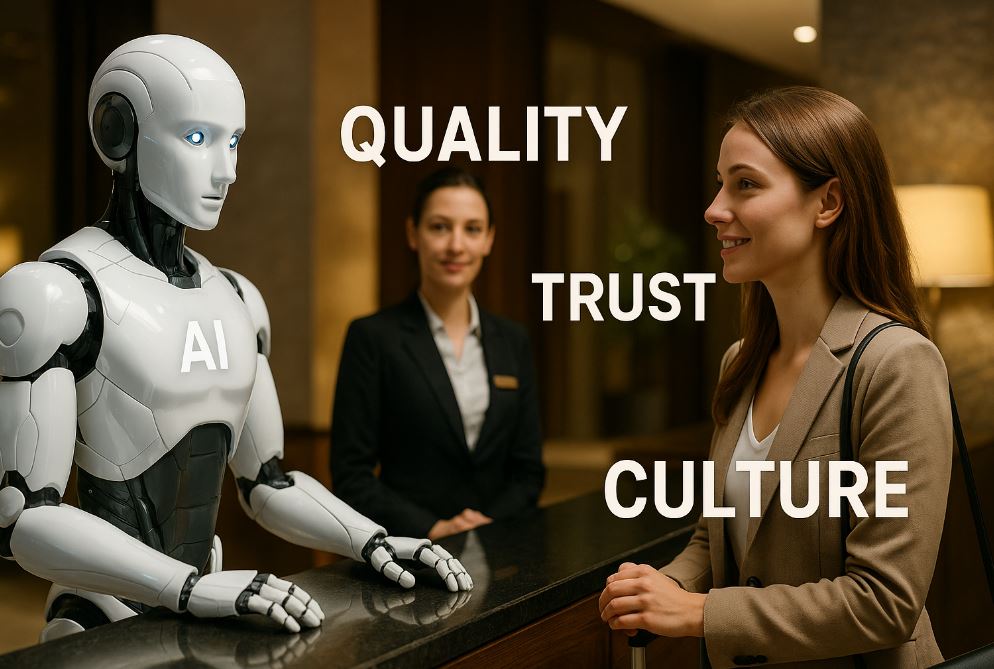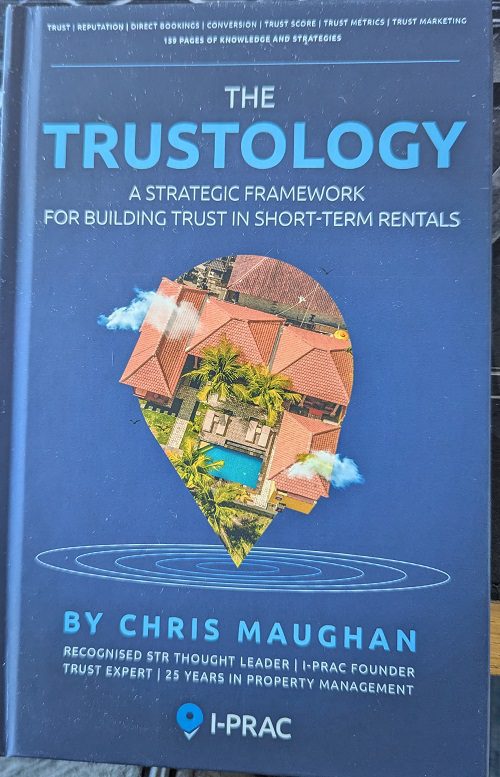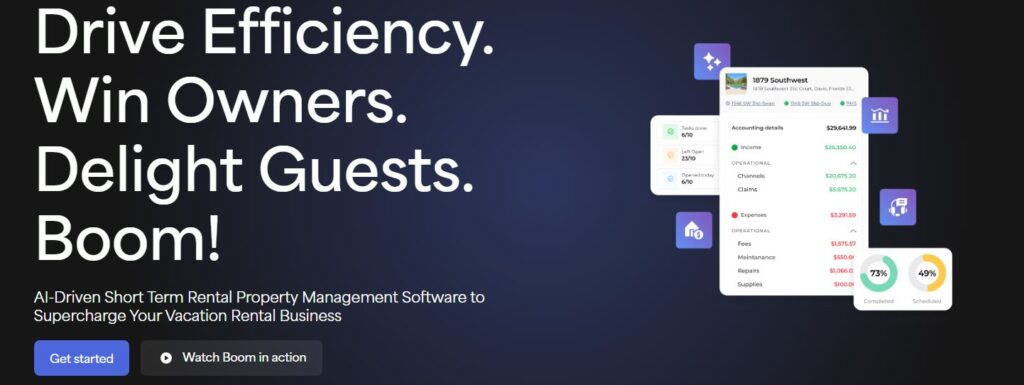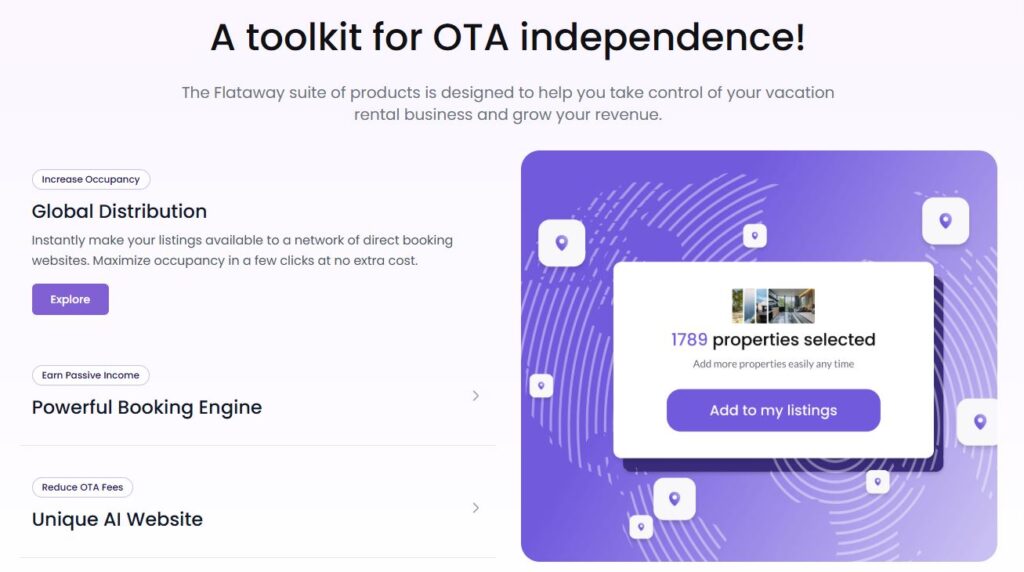
The Future of Short-Term Rentals: AI, Quality, Trust and Culture
It may come as a shock, but recent conferences have revealed that our industry is, in general, far behind the corporate world in both tool adoption, the development of a strategy to improve and defend its business, and even in considering AI as a threat or opportunity. There are some who are on the cutting edge, but in our world of short term rentals, success also depends on trust, quality and team culture, with admin and business intelligence running increasingly on tech and AI rails. The excellent Scale Show last week (November 2025) showed the importance of each dynamic.
Bigger than the Internet?
This new paradigm or inflection point questions whether this is bigger than the internet, even though it relies on such connectivity and requires data access to accelerate reach, training, and development at scale. Robots may well not need this connectivity in the future, and even now you can run your own AI models with some technical skills. However, we are used to global cloud services, which is the standard adoption principle.
Where is it all going?
Do we know where it’s all going? No! But we can guess or speculate, develop our own guardrails, and hedge our bets. STRs are a complex industry, under attack, and the takeaways below are made purely on the basis of working with managers, advising tech companies, being involved in M&A deals, and talking to peers who have invested heavily in both AI tech and management restructuring.
Last week, the CEO of Sykes Cottages, Graham Donoghue, made a presentation on AI at the Host Planet Day Show. No secrets in this presentation: incentivised and continually educated staff and a free admission that they need to hedge bets on how this will play out. One thing is certain: big is better, and this raises questions about new players in this industry and whether it is a sustainable opportunity for many. However he was asked if his investors were concerned about the sizeable levels of investment. The response was very positive, and here is the quote for everyone who is still sceptical or simply not interested:
“We are not a victim of AI, we will be a winner as it gives us a superpower”
Time is running out, and despite the mainstream press speculating that the sector is over-invested, this should not be a concern for STR operators. Our business is under threat on so many fronts, but the danger is driven by one single metric: Margin. This is your sustenance for survival and considers both top of the funnel and operational excellence & efficiencies.
AI and Trust
We have heard so much about Trust in the context of direct bookings. Up until now, with poor-quality websites, the easy nod to OTAs, and the lack of skills in front-end tech to build serious online platforms, things are changing.
Take Trust signals very seriously in the future. Up to now, guests have been focused on price, cancellation terms, availability, reviews, and badges—all of which are increasingly on OTAs. We all know that trust runs deeper than these simple signals; otherwise, there would not be a legion of complaints.

The world of AI is going to radically change this, opening up opportunities for smaller, quality players with sustainable brands. So why will trust become more important? It’s very simple: AI and data access can combine all those elements that make great choices, which could take a human days and they wouldn’t even know where to look or they could be guided by paid media.
AI with API access to official sites (e.g. in the UK: Companies House or VAT validation, or HMRC reporting APIs, major review sites, for example) will radically change guest trust considerations. Add in website visits and scraping of information, internet-wide comparative searches, social media sentiment, payment channels, site security checks, and many more signals and it will give an AI Agent the tools to make recommendations to the guest with trust scores and comparisons.
All managers should address their trust signals—the number, the visually obvious, and those not so often seen—and fix the issues!

At the Scale UK show last week, a free hardback book was handed out FOC to managers, and it is a solid piece of work, by Chris Maughan. Trust signals, actionable advice, and overall trust strategy planning are all covered, plus the most important element: our own neurological approach which underpins the very reason we form communities and human dependencies. As the book says:
“Trust is not a concept, it’s a biological necessity”
In a world where OTA guests (as Airbnb claims they are) can damage trust in a single spiteful moment, a direct booking and an overwhelming trust value can dilute or even eradicate these problem guests.
Is Artificial Intelligence Intelligent?
Who cares? Whether you consider AI as actually intelligent, this is irrelevant right now—it has the capacity to dramatically assist (and damage) businesses. We won’t get into the detail in this post, but currently on offer are tools to assist in repetitive administration functions, operational communication management, pricing, social media, content delivery, website building, Vibe modelling tools, and more. AI is entering all parts of the rental data construct, business intelligence, and processing.
Just consider these benefits:
- Property listing and evaluation for guest discovery
- Marketing opportunities with smart, fast ROI/ROAS, and analysis and improvements
- Adjusting pricing based on local and national market data, your owners’ needs, real-time negotiation, and follow-up booking automation
- Owner updates and data presentations
- Seamless trip companions
- Websites that are focused on search intent, not keywords and filters.
AI in Bookings vs Hospitality & Service
Assuming AI does infiltrate the entire ecosystem, offering operational and business intelligence advantages (and we are already witnessing this), what about discovery and bookings? There are many guesses, but AI agents are the topic most under discussion. The use of “travel agents” will shift travel discovery from simple keyword searches to conversational, personalised planning that assembles itineraries and manages bookings in a single click.
This is a faster, more home-based, and less biased approach than visiting your local shop-front traditional travel agent (they too must plan for this). Perhaps completely automated in a new generation eventually, but initially working on a human co-pilot model.
- a) LLMs (Large Language Models) and this includes Google, of course are both very focused on providing the best results in discovery of rental options. This all goes back to Google’s EEAT (Experience, Expertise, Authenticity, and Trust) push over the last few years, and the reason for so much organic damage. Content needs to follow these rules and structuring advice, too.
- b) Assuming we all have our own AI Agents doing the hard work, where do they sit technically, who has the data, and is it open to manipulation and advertising? With trillions being spent on AI, returns are needed. Already we see Booking and Expedia in ChatGPT and as of time of writing now Google is doing the same! But OTAs are really app-focused as a firewall to search and re-engineering, or will an AI Agent have access to your OTA phone app and then trawl the net and book cheaper and direct?
We can assume that the current OTAs are spending big, and so is Google, to ensure the billions for advertising are not lost, and that the current massive drop in CTRs on organic positions do not mean less focus and traffic on the world’s most dominant search engine, and the paid positions are re-focused to ensure their growth and shareholder value.
Quality, Consideration and Hospitality
The OTAs who know a thing or two about guests are increasingly focused on surfacing the best quality properties, best representation and operators and best communicators. At the Scale conference last week the underlying tones across all educational pieces was “improving” your business in every way, from content to guest amenities, message quality, personal touches, company culture and more. However the old adage “your margin is my opportunity” still applies to tech businesses and no more so than OTAs. Is it possible for the playing field to level out to any degree for those with challenging brands and direct bookings. The answer has to be yes!
AI is part of this process but is the element that needs to be hidden from a large proportion of the general public and no doubt has generation trends. As with the “trust” discussion above, humans have been communicating with others, face to face, subliminally and even through pheromones for thousands of years. We all have a people radar and although we have an increasing dependency on tech, this human touch-point adds huge value. Ask why local STR leisure rental offices do better at owner adoption than nameless centralised corporations. People on the ground, experience, knowledge and that face to face confidence passing the human litmus test.
There is a significant difference between US management companies and many EU/UK businesses, better represented in the lexicon of STRs as “agencies”, meaning they don’t actually employ cleaners and maintenance staff, frequently outsourced to companies and the owners themselves. There are hybrids and arguments for and against, particularly in countries with stringent and challenging employment laws and financial burdens. However one thing is abundantly clear and applies to both agencies and managers: Property churn issues, challenging growth of inventory are fundamental to capital value and stability. We cannot rely on AI for this and requires “people” skills to encourage, adopt, maintain owner relationships. Certainly AI can help with reports, communication and business intelligence and even owner profiling, but that one-one-one is often the key to growth and business delivery still. It also applies to buying and selling companies, many sell for less than they could, but prefer the acquirers attitude and integration approach.
Hospitality is still about people and this is guests, staff and owners. Which is the most important and a question that OTAs seem to have a laser like answer to, the guest! In STR we have two customers, one supply the other demand. Except supply is not an injection molded widget sold by the million, its a unique, often loved, and expensive piece of real estate that needs care and attention at all times, coming with increasing levels of legislation and guest expectation.
We all know that “skin in the game” is a driver to succeed and thousands of management businesses have been established from nothing by entrepreneurs from all walks of life. Employees, even more so these days, expect a work-life balance, often hard to achieve in STRs and therefore reward or ownership based businesses are likely to achieve better results than those without true people/HR skills. Hence the advance of Virtual Assistants to cut costs and remove employment headaches.
There is a fine line between AI and people based hospitality, (until the robots arrive:). Companies that invest in their people and training and technology (read AI future) and go that extra mile, get into the detail, build a culture of success and a community will thrive. Those that do not, will struggle.
At Scale and previously I have met and chatted with Steve Schwab, CEO of Casago the acquirer of the Vacasa (on which we all made predictions in March 2021) and currently moving inventory at a rapid rate of knots into their Franchise model. The US is famous for its global franchises and big brand and under one language (mostly) and after speaking to Casago suppliers too, the whole concept looks to be well accepted and delivering. What is really interesting from and ex-manager and tech owner perspective is the narrative. This is not positioned as a tech business, its a people business. Sure a lot of tech experience and is vital, but the one focus we all need to recognize and address is the human skills development and the owner relationship. Get this right and the company sits on firm foundations and with a franchise at this scale and acceptable commercials looks to be a winner.
The quotes from this increasingly well known Casago Orange Mantra Booklet, “The Orange Standard”.
Vision: “To help every team member to be better off than the day they started. To be indispensable to our homeowners while they are away. To care for guests with genuine hospitality.”
Owner-Centric: “I will build a professional relationship that transcends business.”
Quite refreshing not to hear a shareholder mentioned despite the legal obligations, but one serves the other.
SHOW SPONSOR TAKEAWAYS
PMS system
https://boomnow.com One day all systems will follow!

Website Builders:
https://Flataway.ai Websites need brains, build and beauty. Read out websites of the future report.

New Discovery Channel
https://simplyowners.net (the way it used to be, direct and cost effective. What goes around, comes around)

Disclaimer: Yes Consulting advises these companies. Who wouldn’t want to be part of the future?

